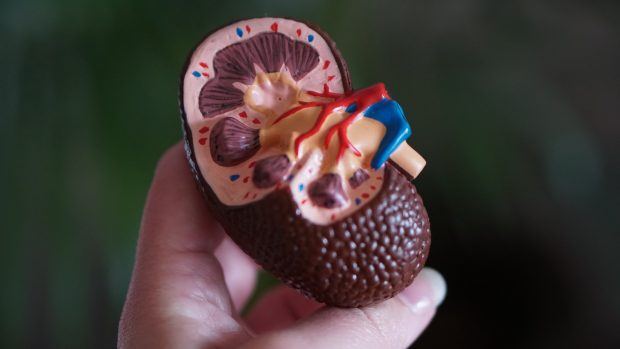Unhealthy living is accelerating chronic kidney disease. This is to the point where even potential donors are being disqualified – damaging not only their own kidneys, but also reducing the chances of saving another’s life.
According to the South African Medical Journal, 10% of people worldwide suffer from some degree of CKD, which significantly impacts their quality of life.
Kidney Health and Longevity
Fadhl Solomon is the Cardiovascular (CVS) Product Manager for Pharma Dynamics. says roughly 2,000 patients are currently awaiting a kidney transplant in South Africa. In the United States, the number is much higher at 121,678.
Unfortunately, the chance of them being matched with a suitable donor organ while still healthy enough to undergo a transplant is slim.
This World Kidney Day, countries around the globe are redoubling their efforts to raise awareness of kidney health and the factors that contribute to the disease.
What are the risk factors?
Solomon says diabetes and uncontrolled hypertension (high blood pressure) are leading causes of kidney disease, which over time can impair the function of one or both kidneys.
“Hypertension causes damage to blood vessels and filters in the kidney, making it difficult to remove waste from the body.
“Your kidneys are a pair of fist-sized organs located in your lower back region, on either side of your spine. They are responsible for balancing water and mineral levels in your body by filtering waste products and excess fluids from your blood into urine for excretion. If your kidneys don’t function optimally, it leads to a build-up of fluid and harmful waste products in your body.”
“Once diagnosed with end-stage renal disease – a blood-cleansing process, called dialysis or kidney transplantation is necessary.”
Symptoms of kidney disease
Some of the symptoms related to kidney disease include;
- high or worsening blood pressure
- a decrease in the amount of urine or cloudy or foamy urine
- muscle cramps or spasms
- dry and itchy skin
- Unexplained weight loss
- oedema (fluid retention) – especially in the lower legs
- a need to urinate more often, especially at night
However, many of these symptoms may go unnoticed. Similar to hypertension, kidney disease is also described as a silent killer.
Am I at risk?
If you are obese, have high blood pressure, diabetes, or chronic inflammation of the filtering units (glomeruli) in the kidney or of the tubules or surrounding structures, a laboratory test to check the health of your kidneys is advisable.
How healthy are my kidneys?
Several blood and urine tests can show if your kidneys are working properly. These tests include the serum creatinine and blood urea nitrogen (BUN) tests – elevated levels of either can indicate kidney damage. Proteinuria an excess of protein in the urine, is also a sign of kidney disease.
“Given the rise in risk factors, it’s important to identify kidney disease early on by going for regular screenings, especially in people who are at risk,” says Solomon.
Managing kidney health
Solomon says managing your risk of developing kidney disease is paramount.
“The best way to control blood pressure is by making healthier lifestyle choices. Those who already have hypertension and/or kidney disease should be prescribed medications that lower blood pressure and can protect the kidneys from further damage.

Photo by Robina Weermeijer on Unsplash
Preventative measures that can slow disease progression and protect against kidney and cardiovascular disease, include:
- Maintain healthy blood pressure by eating healthily, exercising regularly, limiting alcohol intake, and quitting smoking.
- Taking combination therapies, such as an angiotensin II receptor blocker and a diuretic (water pill), or an angiotensin‐converting enzyme (ACE) inhibitor with a calcium antagonist have been shown to be effective in patients who do not respond to monotherapy (treatment of disease with one medication).
- Reduce salt intake.
- Maintaining a healthy body weight.
What about anti-hypertensive methods?
Solomon says there has been some controversy over whether taking anti-hypertensive therapy over the long term can affect your kidneys.
“It’s important to keep in mind that you cannot take certain medication like blood pressure lowering medication or strong anti-inflammatories when you are constantly dehydrated, as this puts additional strain on your kidneys. Adequate hydration is key.”
MAIN IMAGE CREDIT: AlexAnnaButs/Shutterstock
Want to know more?
If you haven’t ever paid much attention to the health of your kidneys, then today is the day to start! Dr. Zarina Ebrahim, a Registered Dietitian and Lecturer at Stellenbosch University, highlights easy ways we can use nutrition to prevent chronic kidney disease.



![women [longevity live]](https://longevitylive.com/wp-content/uploads/2020/01/photo-of-women-walking-down-the-street-1116984-100x100.jpg)










